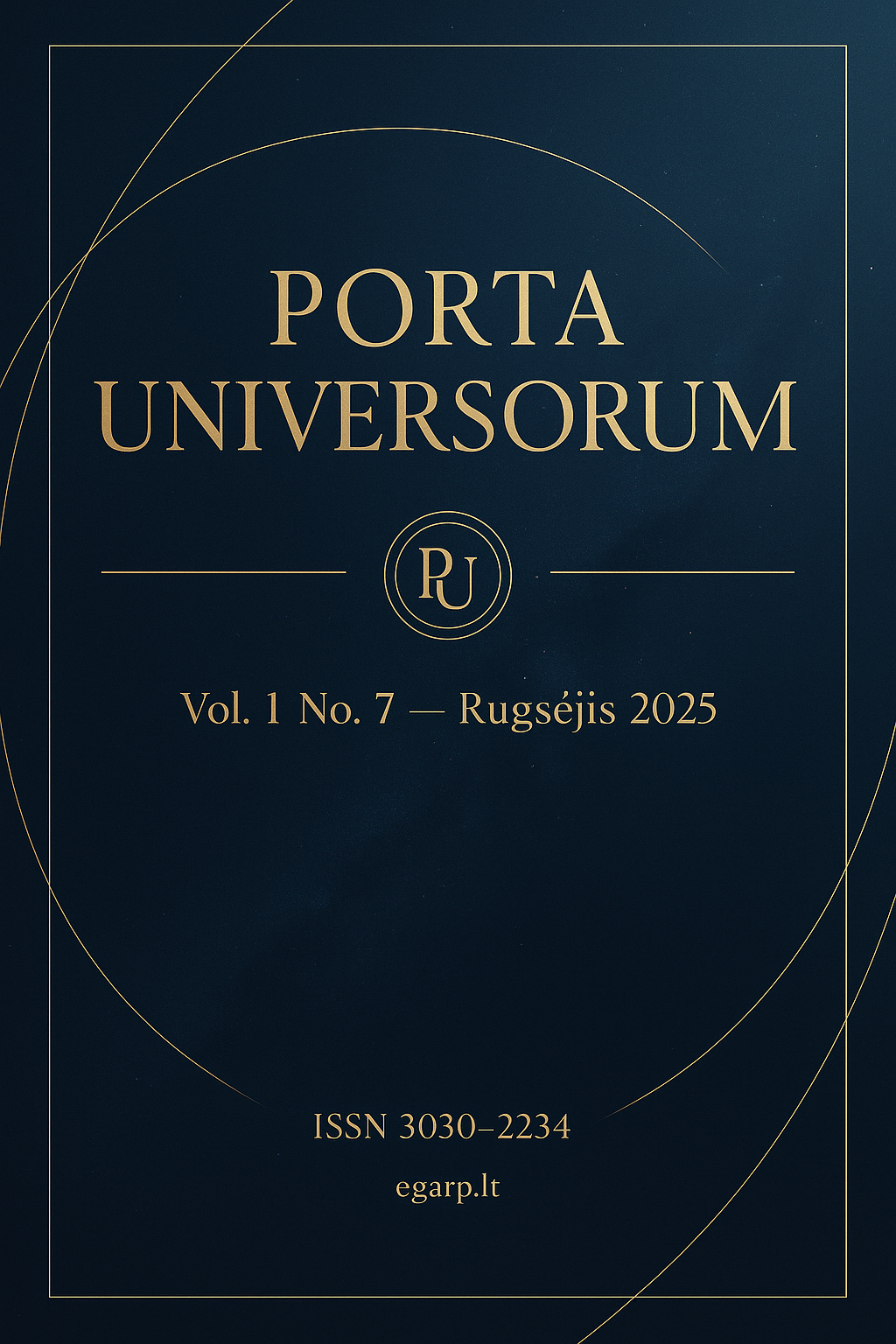Linguistic Risks and Resilience in Digital Language Learning
##semicolon##
https://doi.org/10.69760/portuni.0107010##semicolon##
digital language learning##common.commaListSeparator## linguistic risks##common.commaListSeparator## mobile-assisted language learning (MALL)##common.commaListSeparator## communicative competence##common.commaListSeparator## digital divide##common.commaListSeparator## linguistic diversity##common.commaListSeparator## applied linguisticsSantrauka
Digital technologies have transformed global language education, offering new opportunities for children and students through mobile applications, online platforms, and AI-driven tools. Yet, alongside these innovations, critical linguistic risks emerge that may hinder communicative competence, equity, and linguistic diversity. This article examines such risks by conducting a thematic literature review of recent studies in applied linguistics, sociolinguistics, and digital pedagogy. Findings indicate that while digital tools support vocabulary acquisition, motivation, and learner autonomy, they often fall short in developing productive and socio-pragmatic skills. Risks include over-reliance on automated feedback, exposure to inaccurate or non-standard input, cognitive overload from distractions, inequities arising from the digital divide, and the marginalization of minority languages in digital spaces. The discussion emphasizes blended pedagogical approaches, teacher mediation, infrastructure investment, and inclusion of diverse languages as key strategies to mitigate these risks. By navigating these challenges, digital language learning landscapes can evolve into more effective, equitable, and culturally sustaining environments. This study contributes a theoretically grounded framework for understanding and addressing linguistic risks in digital education, offering insights for educators, policymakers, and developers seeking to align technological innovation with sound linguistic principles.
##submission.citations##
Alisoy, H., & Sadigzade, Z. (2024). Mobile-Assisted Language Learning (MALL): Revolutionizing Language Education. Luminis Applied Science and Engineering, 1(1), 60–72.
Alisoy, H., & Sadigzade, Z. (2025). Comparative Analysis of Mobile Applications and Traditional Methods in Vocabulary Acquisition. Education and Information Technologies, 17(4), 181–194.
Alisoy, H., Mammadova, I., Asadova, B., Ismayilli, F., & Aliyeva, T. (2024). The future of language education: Integrating smartphones into the curriculum. Edelweiss Applied Science and Technology, 8(6), 4539–4556.
Hepworth, S. (2021, Dec 31). People flocked to language apps during the pandemic – but how much can they actually teach you? The Guardian. (Quotation of I. Piller).
Lapădat, M. M. (2023). Harnessing Technological Transformation: The Impact of Mobile-Assisted Language Learning on English Vocabulary Acquisition. Analele Universităţii din Craiova, Seria Ştiinţe Filologice, Limbi Străine Aplicate, (1), 266–279.
Mihaylova, M., Gorin, S., Reber, T. P., & Rothen, N. (2022). A Meta-Analysis on Mobile-Assisted Language Learning Applications: Benefits and Risks. Psychologica Belgica, 62(1), 252–271.
Nuri, A. (2024). The Impact of Social Networks on Language Learning: A Comprehensive Analysis. EuroGlobal Journal of Linguistics and Language Education, 1(2), 65–71.
Pasikowska-Schnass, M. (2020). European Day of Languages: Digital survival of lesser-used languages. European Parliament Think Tank Briefing.
Pérez-Paredes, P., & Zhang, D. (2022). Mobile-Assisted Language Learning: Scope, Praxis and Theory. Porta Linguarum, 1, 1–25.
Sadigzade, Z. (2025). AI-Powered Feedback in ESL Writing Classes: Pedagogical Opportunities and Ethical Concerns. (Literature review, unpublished abstract).
Sadigzade, Z. (2025). Language Learning Through Games: A Computational Linguistics Perspective. EuroGlobal Journal of Linguistics and Language Education, 2(3), 50–62.
Screen Time and Language Development Review (2022). The influence of screen time on children's language development: A review of evidence. (Various studies summarized).
Rao, P. S. (2019). The use of Mobile Assisted Language Learning (MALL) in teaching English in classrooms. Research Journal of English, 4(2), 225–238.
##submission.downloads##
Publikuota
Numeris
Skyrius
##submission.license##
##submission.copyrightStatement##
##submission.license.cc.by-nc4.footer##License Terms
All articles published in Porta Universorum are licensed under the Creative Commons Attribution–NonCommercial 4.0 International License (CC BY-NC 4.0). This license permits:
-
Sharing (copying and redistributing the material in any medium or format),
-
Adapting (remixing, transforming, and building upon the material),
-
for non-commercial purposes only,
-
with proper attribution to the original author(s) and source.
Commercial use of the material is not permitted without prior written permission from the publisher.




